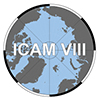|
|
|
|
|
|
|
|
No Arctic-science events are announced for today.
|
Media
What Melting Sea Ice Means for Life in the Arctic. Light is flooding into the Arctic. There will be winners and losers. That's what brought an international group of scientists to the Barents Sea to investigate how plant and animal life will adapt to the new normal. Two key factors that govern the Arctic ecosystem are rapidly changing: ice and light. The Arctic is the fastest-warming place on earth, and ice that used to form on the surface of the ocean is vanishing. Vox
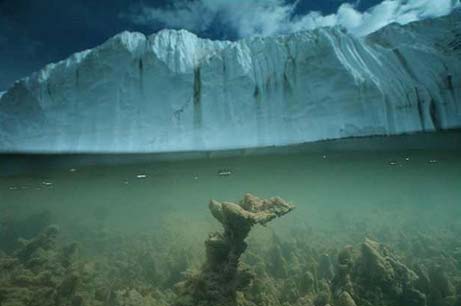 Melting of Arctic Mountain Glaciers Unprecedented in the Past 400 Years. Melting of Arctic Mountain Glaciers Unprecedented in the Past 400 Years. Glaciers in Alaska's Denali National Park are melting faster than at any time in the past four centuries because of rising summer temperatures, a new study finds. New ice cores taken from the summit of Mt. Hunter in Denali National Park show summers there are least 1.2-2 degrees Celsius (2.2-3.6 degrees Fahrenheit) warmer than summers were during the 18th, 19th, and early 20th centuries. Science Daily
Climate Change Denialists Say Polar Bears are Fine. Scientists are Pushing Back. Furry, button-nosed and dependent on sea ice for their survival, polar bears have long been poster animals for climate change. But at a time when established climate science is being questioned at the highest levels of government, climate denialists are turning the charismatic bears to their own uses, capitalizing on their symbolic heft to spread doubts about the threat of global warming. New York Times 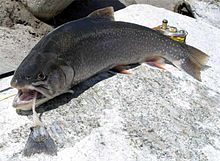 Char in the High Arctic in a Losing Battle with Climate Change: Study. Char in the High Arctic in a Losing Battle with Climate Change: Study. The impact that climate change is inflicting on the largest known High Arctic lake-Ellesmere Island's Lake Hazen-is nothing short of "alarming," researchers from the University of Alberta have found. And it's especially alarming for the lake's only known species of fish, Arctic char. In a decade-long study released March 29 under the title, The World's Largest High Arctic Lake Responds Rapidly to Climate Change, a group of scientists studying glaciology and freshwater ecology in the Arctic found that a one-degree-Celsius rise in atmospheric temperature led to a decline in char populations in Lake Hazen. Nunatsiaq Online Sailors and Scholars from Arctic Countries Discuss Security. Scholars and navy representatives from nations with Arctic territory gathered at the U.S. Naval War College on Tuesday to discuss security and defense in the region. The Newport Arctic Scholars Initiative convened in Newport, Rhode Island. The United States, Canada, Denmark, Finland, Norway and Iceland sent representatives to the three-day event. Sweden also is participating. US News 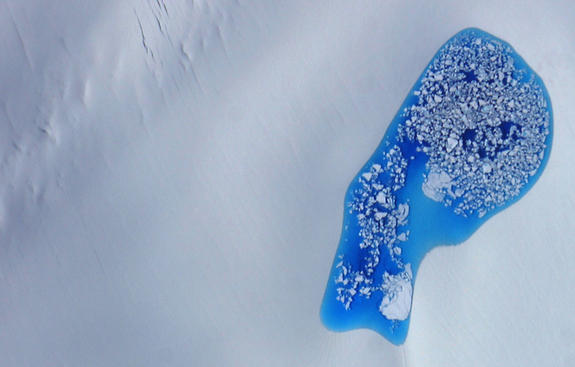 Arctic Mel Pond Distribution Predicted by New Computer Model. Arctic Mel Pond Distribution Predicted by New Computer Model. A new computer model can simulate how ponds of meltwater form and evolve on the surface of Arctic sea ice with robust accuracy. Created by Predrag Popovic and colleagues at the University of Chicago and the Massachusetts Institute of Technology, the model uses just two parameters to predict the locations, shapes and sizes of the ponds. The work could greatly improve predictions of how the melting of Arctic sea ice will respond to climate change in the coming decades. Physics World
|
|
Future Events
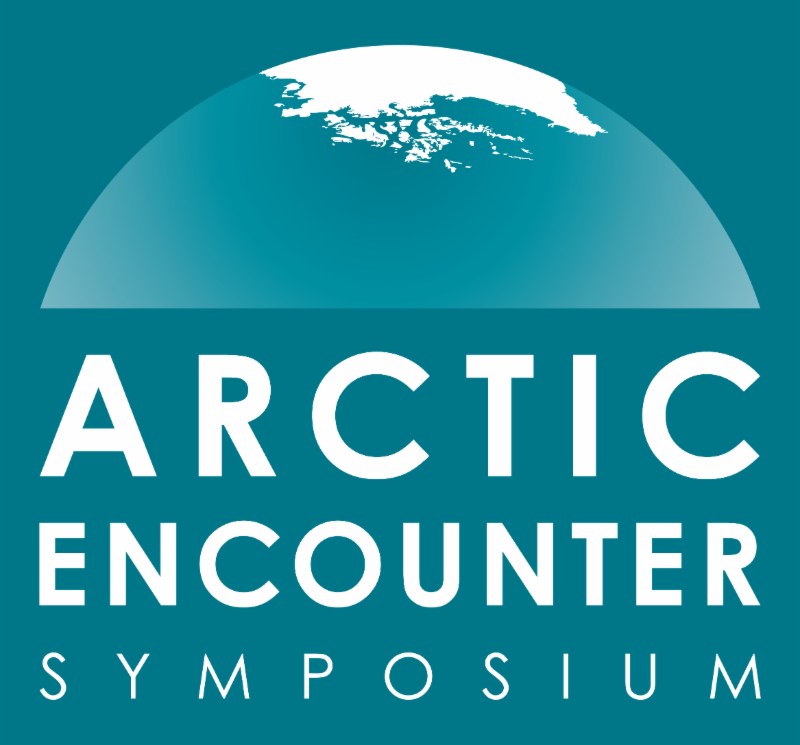 5th Annual Arctic Encounter Symposium (AES), April 19-20, 2018 (Seattle, WA, USA) 5th Annual Arctic Encounter Symposium (AES), April 19-20, 2018 (Seattle, WA, USA) The Arctic Encounter, the largest annual Arctic policy conference in the U.S., will convene policymakers, industry leaders, scientists, Arctic artists and musical performers, and other stakeholders to debate and discuss emerging Arctic challenges and opportunities including policy, innovation, security, and development. The mission of AES is to raise awareness, engage challenges, and develop solutions for the future of the Arctic region and the people who live there. The 5th annual AES will take place in downtown Seattle at the Bell Harbor International Conference Center on Pier 66.
2018 North by North Festival, April 23-29, 2018 (Anchorage, Alaska USA). The North by North Festival captures the spirit of Alaska and the Arctic - to address our challenges and opportunities with Northern innovation and resilience, to build on a rich history and to ensure a future full of promise. The Festival is for the North, and organized by Northerners, with goals of sustainability, livability and growth. The Festival brings innovators from across Alaska, the nation and other Arctic regions to collaborate and address local and circumpolar challenges. Through knowledge, governance, business, design, film, music, food, literature and art, we celebrate the North.
** New this week ** IARPC Collaborations Webinar Series: Creating a National Scientific Mission: The Nansen Legacy Project, April 24, 2018 (Webinar). The Nansen Legacy project breaks new ground in national-scale Arctic research collaborations, forming a national team representing nearly Norway's entire marine Arctic expertise including 130 scientists, 50 new recruiting positions and Norway's new research icebreaker. This $97 million project for the exploration and understanding of Norway's ice-covered water and adjacent Polar Ocean commenced in 2018 and will run for six years. This unique collaboration required the development of new evaluation and financing strategies, challenging research institutions and government. It presents a step towards the future cooperation between the five Arctic coastal states in order to comprehend the entirety of the Arctic Ocean. Webinar featuring Dr. Paul Wassman commences April 24, 2018, 12:30 PM Eastern Time. More info at https://www.iarpccollaborations.org/webinars.html
** New this week ** 2018 Anchorage Arctic Research Day, April 26, 2018 (Anchorage, Alaska USA). This event is held in conjunction with the 2018 North by North Festival. It is organized by the Arctic Research Consortium of the US, the University of Alaska Anchorage, the Anchorage Museum, and the Institute of the North. This gathering will include participants from government, corporate, academic, not-for-profit, and Indigenous groups, and will feature oral panel discussions by leading researchers across the natural and social sciences, health, engineering, humanities, the arts, and governance. The day will also feature both formal and informal activities to encourage networking and robust roundtable discussions to encourage collaborations across the boundaries of discipline, organization, and sector.
Council on Earth Cryology, May 15-16, 2018 (Moscow, Russian Federation). Scientific council on Earth cryology of Russian Academy of Sciences together with Department of Geocryology of Faculty of Geology of Lomonosov Moscow State University, Institute of the Earth Cryosphere, the Tyumen Scientific Senter, Melnikov Permafrost Institute (Yakutsk) of the Siberian Branch of the Russian Academy of Science holds on May 15 - 16, 2018 an enlarged meeting with participation of the Russian and foreign scientists, engineers and experts: "Current problems of geocryology." The meeting of Scientific council on Earth Cryology of RAS has the status of the International meeting. The publication of materials in the collection of reports is planned. Submissions (Submission Form), offers on cooperation, support of a conference and papers (Sample of Paper) to e-mail: cryoconf18@gmail.com
- Addressing the energy field of the future;
- Defense energy systems in the North;
- Natural hazards and aerospace/defense;
- Empowering Alaska's entrepreneurs;
- Navigating the changing Arctic; and,
- Developing local and global energy solutions.
The Effects of Climate Change on the World's Oceans, June 4-8, 2018 (Washington, DC USA). The 4th International Symposium will bring together experts from around the world to better understand climate impacts on ocean ecosystems - and how to respond. The event is hosted by a variety of groups including International Council for the Exploration of the Sea (ICES), N. Pacific Marine Science Organization (PICES), Intergovernmental Oceanographic Commission of UNESCO (IOC), and Food and Agriculture Organization of the United Nations (FAO).
 POLAR 2018, June 15-27, 2018 (Davos, Switzerland). POLAR2018 is a joint event from the Scientific Committee on Antarctic Research (SCAR) and the International Arctic Science Committee (IASC). The SCAR meetings, the ASSW and the Open Science Conference will be hosted by the Swiss Federal Institute for Forest, Snow and Landscape Research WSL under the patronage of the Swiss Committee on Polar and High Altitude Research. The WSL Institute for Snow and Avalanche Research SLF is organizing POLAR2018. POLAR 2018, June 15-27, 2018 (Davos, Switzerland). POLAR2018 is a joint event from the Scientific Committee on Antarctic Research (SCAR) and the International Arctic Science Committee (IASC). The SCAR meetings, the ASSW and the Open Science Conference will be hosted by the Swiss Federal Institute for Forest, Snow and Landscape Research WSL under the patronage of the Swiss Committee on Polar and High Altitude Research. The WSL Institute for Snow and Avalanche Research SLF is organizing POLAR2018.
5th European Conference on Permafrost, June 23-July 1, 2018 (Chamonix-Mont Blanc, France). In the continuation of the International and Regional conferences convened by the International Permafrost Association, the 5th European Conference on Permafrost (EUCOP 2018) will be held in Chamonix-Mont Blanc, France, 23rd June - 1st July 2018. The conference aims at covering all relevant aspects of permafrost research, engineering and outreach on a global and regional level. Conference website: here.
Arctic Observing Summit 2018, June 24-26, 2018 (Davos, Switzerland). The Arctic Observing Summit (AOS) is a high-level biennial summit that provides a platform to address urgent and broadly recognized needs of Arctic observing across all components of the Arctic system. AOS 2018 will be held in Davos, Switzerland ( June 24-26) and will focus on pressing issues in the implementation and support of sustained observations that can be addressed through a business-case lens. To that end, short submissions are requested that address any and all aspects of the overarching theme and sub-themes. Additional information can be found here.
17th International Congress of Circumpolar Health (ICCH17), August 12-15, 2018 (Copenhagen, Denmark). The ICCH congresses are held every third year in different locations in the circumpolar area and represent the largest scientific meetings worldwide on circumpolar health. The ICCH congresses serve as the primary source of information exchange and scholarly communication in issues relating to circumpolar health. More than 750 participants generally register and participate in each Congress, and more than 400 scientific papers or posters are usually presented.
UArctic Congress 2018, September 3-7, 2018 (Oulu and Helsinki, Finland).
The UArctic Congress 2018 will bring together key UArctic meetings and a science conference into one single gathering, including business meetings of the Council of UArctic, Rectors' Forum, Student Forum, and Thematic Networks & UArctic Institutes Leadership Team. The Congress is an integral part of the Finland's Arctic Council chairmanship program, and open to the public. The event will highlight the themes and priorities of the Finnish chairmanship, including the goals of the United Nations' 2030 Agenda for Sustainable Development, and the Paris Agreement under the UN Framework Convention on Climate Change.
The second Arctic Biodiversity Congress is hosted by the Conservation of Arctic Flora and Fauna (CAFF), the biodiversity working group of the Arctic Council, and the Ministry of the Environment, Finland. The second Arctic Biodiversity Congress will build on the success of the first Congress, held in 2014 in Trondheim, Norway, and will bring together scientists, policymakers government officials, Indigenous representatives, Traditional Knowledge holders, industry, non-governmental organizations, and others to promote the conservation and sustainable use of Arctic biodiversity.
|
|

  
4350 N. Fairfax Drive, Suite 510
Arlington, VA 22203, USA
External links in this publication, and on the USARC's World Wide Web site ( www.arctic.gov) do not constitute endorsement by the US Arctic Research Commission of external Web sites or the information, products or services contained therein. For other than authorized activities, the USARC does not exercise any editorial control over the information you may find at these locations. These links are provided consistent with the stated purpose of this newsletter and the USARC Web site.
|
|
|
|
|
|
|
|
|
 Melting of Arctic Mountain Glaciers Unprecedented in the Past 400 Years. Glaciers in Alaska's Denali National Park are melting faster than at any time in the past four centuries because of rising summer temperatures, a new study finds. New ice cores taken from the summit of Mt. Hunter in Denali National Park show summers there are least 1.2-2 degrees Celsius (2.2-3.6 degrees Fahrenheit) warmer than summers were during the 18th, 19th, and early 20th centuries. Science Daily
Melting of Arctic Mountain Glaciers Unprecedented in the Past 400 Years. Glaciers in Alaska's Denali National Park are melting faster than at any time in the past four centuries because of rising summer temperatures, a new study finds. New ice cores taken from the summit of Mt. Hunter in Denali National Park show summers there are least 1.2-2 degrees Celsius (2.2-3.6 degrees Fahrenheit) warmer than summers were during the 18th, 19th, and early 20th centuries. Science Daily Char in the High Arctic in a Losing Battle with Climate Change: Study. The impact that climate change is inflicting on the largest known High Arctic lake-Ellesmere Island's Lake Hazen-is nothing short of "alarming," researchers from the University of Alberta have found. And it's especially alarming for the lake's only known species of fish, Arctic char. In a decade-long study released March 29 under the title, The World's Largest High Arctic Lake Responds Rapidly to Climate Change, a group of scientists studying glaciology and freshwater ecology in the Arctic found that a one-degree-Celsius rise in atmospheric temperature led to a decline in char populations in Lake Hazen. Nunatsiaq Online
Char in the High Arctic in a Losing Battle with Climate Change: Study. The impact that climate change is inflicting on the largest known High Arctic lake-Ellesmere Island's Lake Hazen-is nothing short of "alarming," researchers from the University of Alberta have found. And it's especially alarming for the lake's only known species of fish, Arctic char. In a decade-long study released March 29 under the title, The World's Largest High Arctic Lake Responds Rapidly to Climate Change, a group of scientists studying glaciology and freshwater ecology in the Arctic found that a one-degree-Celsius rise in atmospheric temperature led to a decline in char populations in Lake Hazen. Nunatsiaq Online Arctic Mel Pond Distribution Predicted by New Computer Model. A new computer model can simulate how ponds of meltwater form and evolve on the surface of Arctic sea ice with robust accuracy. Created by Predrag Popovic and colleagues at the University of Chicago and the Massachusetts Institute of Technology, the model uses just two parameters to predict the locations, shapes and sizes of the ponds. The work could greatly improve predictions of how the melting of Arctic sea ice will respond to climate change in the coming decades. Physics World
Arctic Mel Pond Distribution Predicted by New Computer Model. A new computer model can simulate how ponds of meltwater form and evolve on the surface of Arctic sea ice with robust accuracy. Created by Predrag Popovic and colleagues at the University of Chicago and the Massachusetts Institute of Technology, the model uses just two parameters to predict the locations, shapes and sizes of the ponds. The work could greatly improve predictions of how the melting of Arctic sea ice will respond to climate change in the coming decades. Physics World

